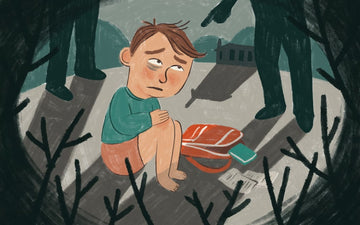
Raising a single child most definitely comes with plenty of perks but that doesn’t mean raising a singleton is easy. As parents, it can be difficult to explain a single child why they don't have siblings. This can be especially challenging if the child has expressed a desire for a brother or sister, or if they feel left out when they see other families with multiple children. They often come up with “Most of my friends have a brother or sister, why don’t I have one.” When kids struggle to manage their feelings of disappointment around not having a sibling, parents might be unsure about the best way to respond. Experts say that, while this particular disappointment can feel unique, parents can feel confident responding in much the same way they would to any major disappointment a child experiences.
Here are some tips on how help them manage the feeling of disappoitment:

1. Be honest and transparent: It's important to be honest with your child about why they don't have any siblings. You can explain any medical or financial reasons that may have led to the decision to have only one child. It's important to make sure your child understands that their lack of siblings does not reflect on them personally.

2. Highlight the benefits of being an only child: While it's understandable that your child may feel like they're missing out on something by not having siblings, there are also many benefits to being an only child. For example, they may have more one-on-one time with you, more opportunities to pursue their own interests, and less sibling rivalry and conflict.

3. Encourage socialization: It's important for single children to have opportunities to socialize with other children their age. You can encourage your child to join clubs or sports teams, or arrange playdates with other children. This can help your child feel less isolated and more connected to their peers.

4. Emphasize the importance of family: While your child may not have siblings, they still have a loving family. Emphasize the importance of family and the unique bond that exists between parents and their children. You can also involve your child in family traditions and activities to reinforce this message.

5. Consider future plans: If you are open to having more children in the future, you can let your child know that it's a possibility. However, it's important to be honest about any challenges or limitations that may prevent this from happening.

6. But most importantly, Understand & Get to the bottom of their desire:
While the desire for a sibling may seem simple on the surface, the actual reason behind the desire can vary greatly from child to child. Some kids think that a sibling will be a playmate while others like the idea of having a baby to care for, and still others are just feeling overwhelmed that their friends have siblings and they don’t. When you respond with curiosity to learn more about why their child has such a strong desire, they might be able to help meet the resolve these feelings and meet their needs in other ways. You may find that your child's desire for a sibling will fade after you've identified their unmet need.
Addressing the topic of why a single child does not have siblings can be challenging, but it's important to approach the conversation with honesty, empathy, and understanding. By highlighting the benefits of being an only child and encouraging socialization, you can help your child feel more connected and valued.





